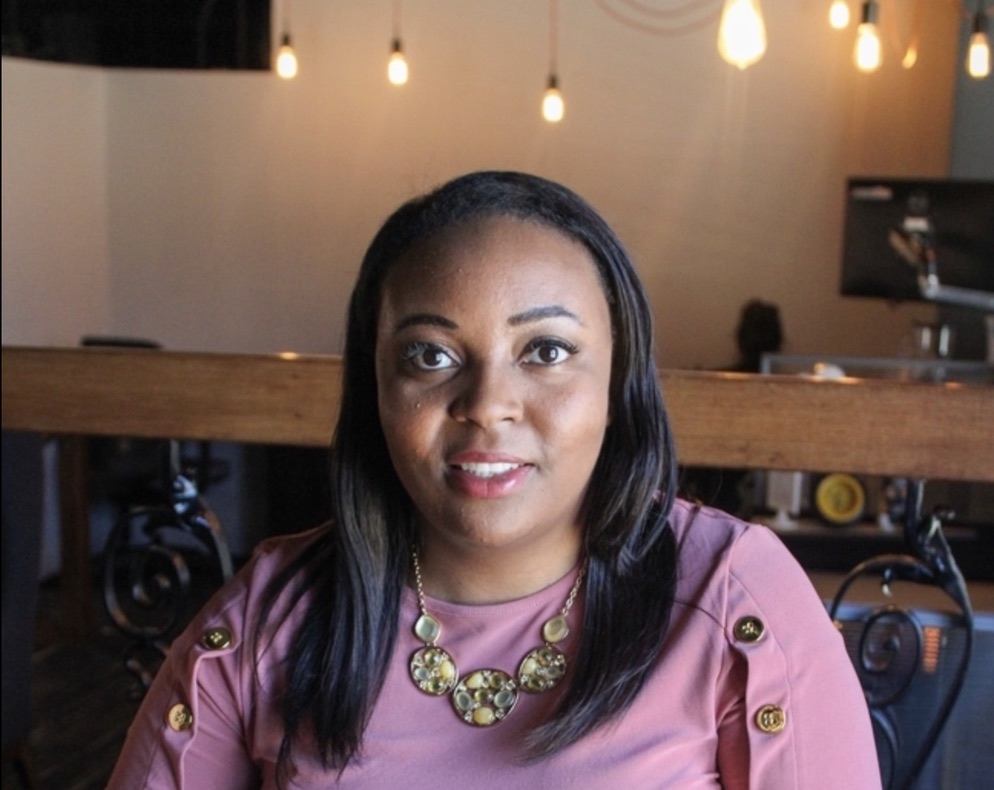4 Money Habits Boomers Swore By That Millennials Are Walking Away From
Millennials are trading tradition for flexibility when it comes to building wealth.

Profit and prosper with the best of Kiplinger's advice on investing, taxes, retirement, personal finance and much more. Delivered daily. Enter your email in the box and click Sign Me Up.
You are now subscribed
Your newsletter sign-up was successful
Want to add more newsletters?

Delivered daily
Kiplinger Today
Profit and prosper with the best of Kiplinger's advice on investing, taxes, retirement, personal finance and much more delivered daily. Smart money moves start here.

Sent five days a week
Kiplinger A Step Ahead
Get practical help to make better financial decisions in your everyday life, from spending to savings on top deals.

Delivered daily
Kiplinger Closing Bell
Get today's biggest financial and investing headlines delivered to your inbox every day the U.S. stock market is open.

Sent twice a week
Kiplinger Adviser Intel
Financial pros across the country share best practices and fresh tactics to preserve and grow your wealth.

Delivered weekly
Kiplinger Tax Tips
Trim your federal and state tax bills with practical tax-planning and tax-cutting strategies.

Sent twice a week
Kiplinger Retirement Tips
Your twice-a-week guide to planning and enjoying a financially secure and richly rewarding retirement

Sent bimonthly.
Kiplinger Adviser Angle
Insights for advisers, wealth managers and other financial professionals.

Sent twice a week
Kiplinger Investing Weekly
Your twice-a-week roundup of promising stocks, funds, companies and industries you should consider, ones you should avoid, and why.

Sent weekly for six weeks
Kiplinger Invest for Retirement
Your step-by-step six-part series on how to invest for retirement, from devising a successful strategy to exactly which investments to choose.
Many baby boomers have done well for themselves financially. An Allianz global wealth report found that boomers — born from 1946 to 1964 — have become the wealthiest generation in history.
But across housing, investing, retirement planning and careers, millennials are rewriting the playbook boomers used. Not because the old rules were “wrong,” but because the math, the market and the workplace have all changed.
Here are four money habits millennials are moving away from and the factors driving those shifts.
From just $107.88 $24.99 for Kiplinger Personal Finance
Become a smarter, better informed investor. Subscribe from just $107.88 $24.99, plus get up to 4 Special Issues

Sign up for Kiplinger’s Free Newsletters
Profit and prosper with the best of expert advice on investing, taxes, retirement, personal finance and more - straight to your e-mail.
Profit and prosper with the best of expert advice - straight to your e-mail.
1. Millennials are choosing to rent over buying

For boomers, owning a home was the default wealth plan and a cornerstone of the American dream. Today, higher prices and elevated mortgage rates make the buy-vs-rent decision less clear — especially for millennials and younger generations.
The National Association of Realtors (NAR) tracks affordability and recently reported that the average monthly mortgage payment rose 3%, while the median price of a single-family home increased by the same amount.
Although mortgage rates have eased slightly from their peaks, they remain in the mid-6% range for a 30-year fixed loan — well above the 2% to 4% rates that many earlier buyers locked in. Add to that a steep drop in first-time buyers’ market share and a rise in the median first-time buyer age from 35 to 38, and you see why more millennials are renting longer to preserve cash flow and flexibility.
While some millennials might feel as if buying a home is not an option right now given their finances, others are choosing to continue renting and put more money toward investments and other goals instead.
2. Moving money out of 'safe' accounts and into investments
Boomers were more likely to lean on CDs, savings accounts and annuities, which are solid tools in the right context. Millennials, by contrast, are starting earlier with market investing, often using low-cost index funds and target-date funds inside 401(k)s and IRAs.
According to Vanguard’s 2024 How America Saves report (PDF), more younger workers are enrolling in retirement accounts and choosing professionally managed allocations that help keep their investments on track.
Millennials and Gen Z are also taking advantage of user-friendly mobile apps to invest and of commission-free trading platforms, as well as robo-advisers, which all help streamline their investing strategy.
3. Planning for retirement without pensions or Social Security

Private-sector pensions that once guaranteed lifetime income have largely disappeared. Today, only about 15% of private-industry workers have access to a defined-benefit plan. That shift has pushed millennials toward self-funded retirement vehicles such as 401(k)s and IRAs.
On the Social Security side, trustees project the Old-Age and Survivors Insurance (OASI) trust fund will be depleted by 2033 under current law. After that, payroll taxes would still cover most benefits, but uncertainty around the program is nudging millennials to save more on their own.
Financial expert Suze Orman recommends younger savers consider Roth 401(k), 403(b) or Roth IRA savings options since they can reduce your future tax risk and avoid required minimum distributions later in retirement.
While a traditional 401(k) is a great option, Orman points out that this account uses pre-tax dollars that you can deduct each year for tax savings. But you might be in a higher income tax bracket now and when you will need to take required minimum distributions or RMDs, which are treated as ordinary income.
4. Leaving behind the idea of staying at one company for life
Boomers often built careers — and benefits — by staying put. Millennials, however, entered a job market where skills, not loyalty, drive pay and opportunity. That shift has led to shorter stints at individual companies and more lateral moves. Today, the median job tenure across workers is under four years, reflecting a labor market that rewards mobility and continuous upskilling.
Flexibility also matters. Many younger workers prefer hybrid setups and value employers that support well-being and growth, even if that means switching jobs to get it. Surveys consistently show Millennials prioritize flexibility and development over long-term lock-in.
Millennials aren’t rejecting wealth-building; they’re updating it to fit the times. As this shift shows, there’s more than one way to reach the same goal: financial security.
In the end, money is personal. Your choices should reflect your unique situation, values and goals.
Related Content:
Profit and prosper with the best of Kiplinger's advice on investing, taxes, retirement, personal finance and much more. Delivered daily. Enter your email in the box and click Sign Me Up.

Choncé is a personal finance freelance writer who enjoys writing about eCommerce, savings, banking, credit cards, and insurance. Having a background in journalism, she decided to dive deep into the world of content writing in 2013 after noticing many publications transitioning to digital formats. She has more than 10 years of experience writing content and graduated from Northern Illinois University.
-
 Quiz: Do You Know How to Avoid the "Medigap Trap?"
Quiz: Do You Know How to Avoid the "Medigap Trap?"Quiz Test your basic knowledge of the "Medigap Trap" in our quick quiz.
-
 5 Top Tax-Efficient Mutual Funds for Smarter Investing
5 Top Tax-Efficient Mutual Funds for Smarter InvestingMutual funds are many things, but "tax-friendly" usually isn't one of them. These are the exceptions.
-
 AI Sparks Existential Crisis for Software Stocks
AI Sparks Existential Crisis for Software StocksThe Kiplinger Letter Fears that SaaS subscription software could be rendered obsolete by artificial intelligence make investors jittery.
-
 One of the Most Powerful Wealth-Building Moves a Woman Can Make: A Midcareer Pivot
One of the Most Powerful Wealth-Building Moves a Woman Can Make: A Midcareer PivotIf it feels like you can't sustain what you're doing for the next 20 years, it's time for an honest look at what's draining you and what energizes you.
-
 I'm a Wealth Adviser Obsessed With Mahjong: Here Are 8 Ways It Can Teach Us How to Manage Our Money
I'm a Wealth Adviser Obsessed With Mahjong: Here Are 8 Ways It Can Teach Us How to Manage Our MoneyThis increasingly popular Chinese game can teach us not only how to help manage our money but also how important it is to connect with other people.
-
 Looking for a Financial Book That Won't Put Your Young Adult to Sleep? This One Makes 'Cents'
Looking for a Financial Book That Won't Put Your Young Adult to Sleep? This One Makes 'Cents'"Wealth Your Way" by Cosmo DeStefano offers a highly accessible guide for young adults and their parents on building wealth through simple, consistent habits.
-
 My Spouse and I Are Saving Money for a Down Payment on a House. Which Savings Account is the Best Way to Reach Our Goal?
My Spouse and I Are Saving Money for a Down Payment on a House. Which Savings Account is the Best Way to Reach Our Goal?Learn how timing matters when it comes to choosing the right account.
-
 We're 78 and Want to Use Our 2026 RMD to Treat Our Kids and Grandkids to a Vacation. How Should We Approach This?
We're 78 and Want to Use Our 2026 RMD to Treat Our Kids and Grandkids to a Vacation. How Should We Approach This?An extended family vacation can be a fun and bonding experience if planned well. Here are tips from travel experts.
-
 My First $1 Million: Retired From Real Estate, 75, San Francisco
My First $1 Million: Retired From Real Estate, 75, San FranciscoEver wonder how someone who's made a million dollars or more did it? Kiplinger's My First $1 Million series uncovers the answers.
-
 To Love, Honor and Make Financial Decisions as Equal Partners
To Love, Honor and Make Financial Decisions as Equal PartnersEnsuring both partners are engaged in financial decisions isn't just about fairness — it's a risk-management strategy that protects against costly crises.
-
 Top 5 Career Lessons From the 2026 Winter Olympics (So Far)
Top 5 Career Lessons From the 2026 Winter Olympics (So Far)Five lessons to learn from the 2026 Winter Olympics for your career and finances.